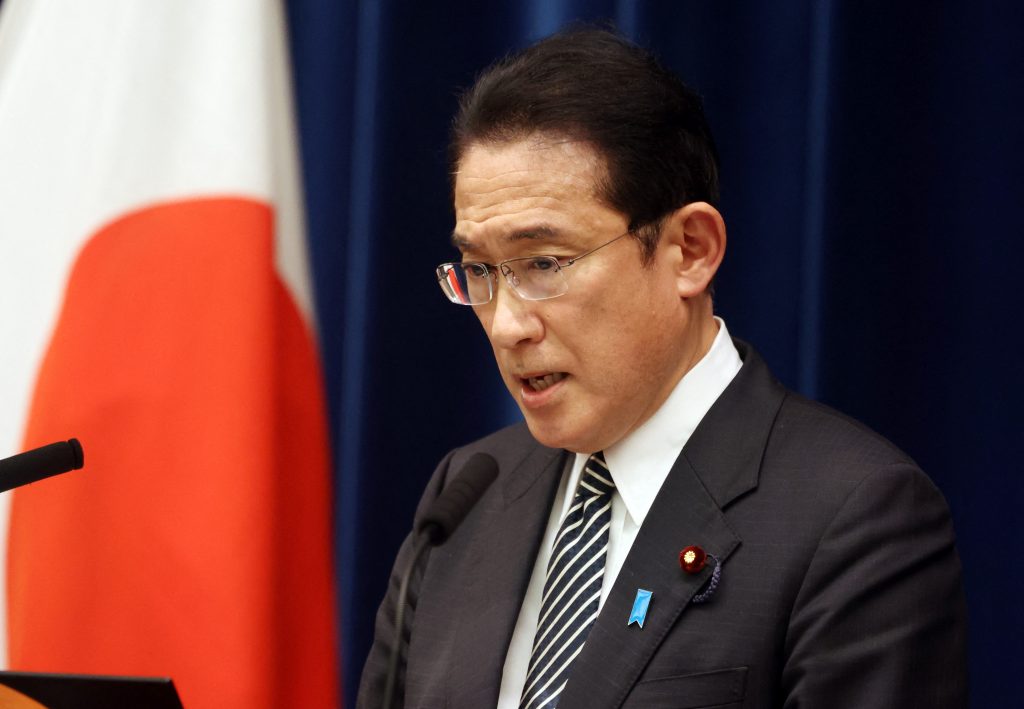
- ARAB NEWS
- 31 Jul 2025

TOKYO: The biggest diplomatic challenge Japanese Prime Minister KISHIDA Fumio faces this year is how to steer relations with China as the two countries mark the 50th anniversary of diplomatic ties in September.
China has stepped up its military activities in the East China Sea and South China Sea. Concerns over a possible military conflict in the Taiwan Strait are growing. Beijing has repeatedly sent coast guard ships into Japanese territorial waters off the Senkaku Islands in the East China Sea.
Kishida plans to counter the threats from China by strengthening cooperation with allies including the United States and Australia. At the same time, however, he does not want to give a decisive blow to relations between Tokyo and Beijing.
“We’ll say what we should say, based on the fundamental values of democracy, the rule of law and human rights,” Kishida said at a press conference late last month, referring to his administration’s foreign policy toward China.
Japan said last month that it will not send a government delegation to the Winter Olympics and Paralympics in Beijing set to start in February, following a diplomatic boycott of the Games by the United States, Britain and others.
But Tokyo avoided highlighting concerns about Beijing’s human rights record in Xinjiang and Hong Kong, given China’s role as Japan’s biggest trading partner.
A state visit to Japan by Chinese President Xi Jinping has been delayed for long. Beijing may press Tokyo to arrange for the visit at an early date to drive a wedge between Japan and the United States amid tensions between Washington and Beijing.
There is no celebratory mood in Japan over the 50th anniversary of diplomatic relations between Japan and China. “No decision has been made on whether to hold a ceremony,” a Japanese government source said.
Kishida aims to hold a summit meeting in person with U.S. President Joe Biden at an early date to highlight strong ties between the two countries. But the countries have scheduling difficulties due to Washington’s apparent inward-looking approach ahead of midterm elections in the autumn and the spread of the omicron coronavirus variant.
The Japanese and U.S. foreign and defense ministers are expected to meet virtually in early January ahead of the summit meeting. “The Japan-U.S. alliance and strengthening Japan’s defense capabilities are two key pillars” of policy to counter China’s hegemonic ambitions, a senior Japanese Defense Ministry official said.
Kishida is also considering traveling to Australia at an early date for talks with Prime Minister Scott Morrison. During the visit, the two leaders are expected to sign an agreement to smooth the way for visits to each other’s country by Japan’s Self-Defense Forces and the Australian military.
Japan is also exploring the possibility of hosting a summit of leaders of the Quad countries that also include the United States, Australia and India.
Relations between Japan and South Korea that officials and experts say have plunged to their lowest point since the 1965 normalization of diplomatic ties is also a focus of attention.
Improvement is unlikely under the administration of South Korean President Moon Jae-in as the two sides remain wide apart over history issues including compensation for Koreans requisitioned to work for Japanese companies during World War II.
Attention is shifting to the South Korean presidential election in March. “The situation will get worse if a liberal candidate wins, but things will not be easy even if a conservative candidate wins,” a senior Japanese Foreign Ministry official said.
The Japanese government plans to continue to ask for dialogue with North Korean leader Kim Jong Un. Tokyo is increasingly alert to advancement in North Korea’s nuclear and missile capabilities and concerned about little progress toward resolving Pyongyang’s abductions of Japanese citizens.
There has been little progress toward resolving a territorial dispute between Japan and Russia over northwestern Pacific islands as well, as Moscow has been increasingly taking a tougher stance.
JIJI Press